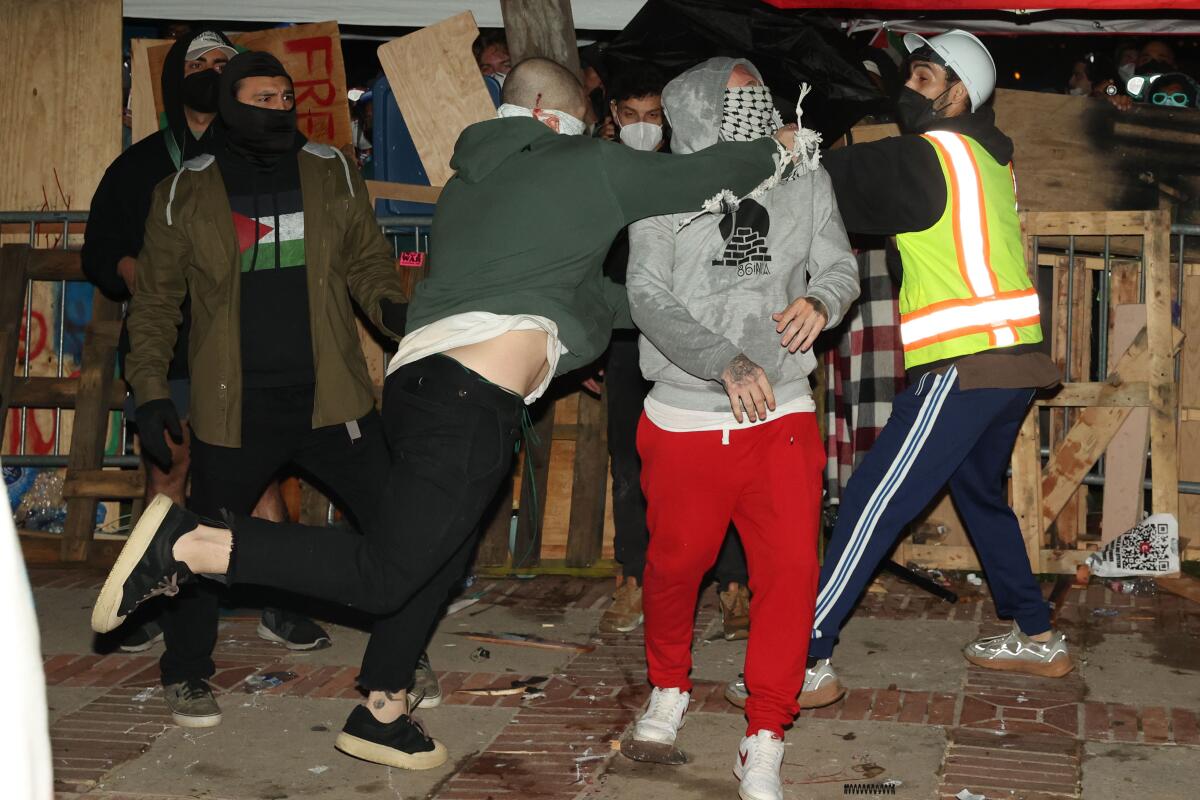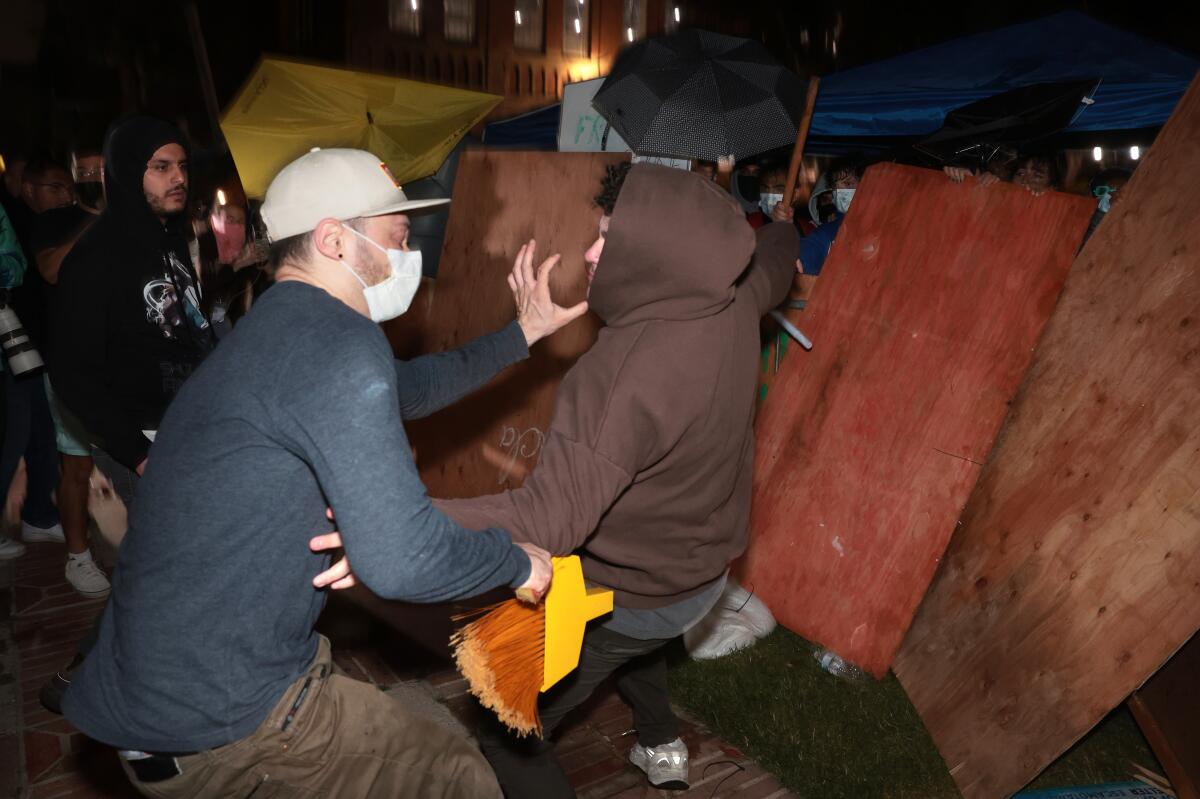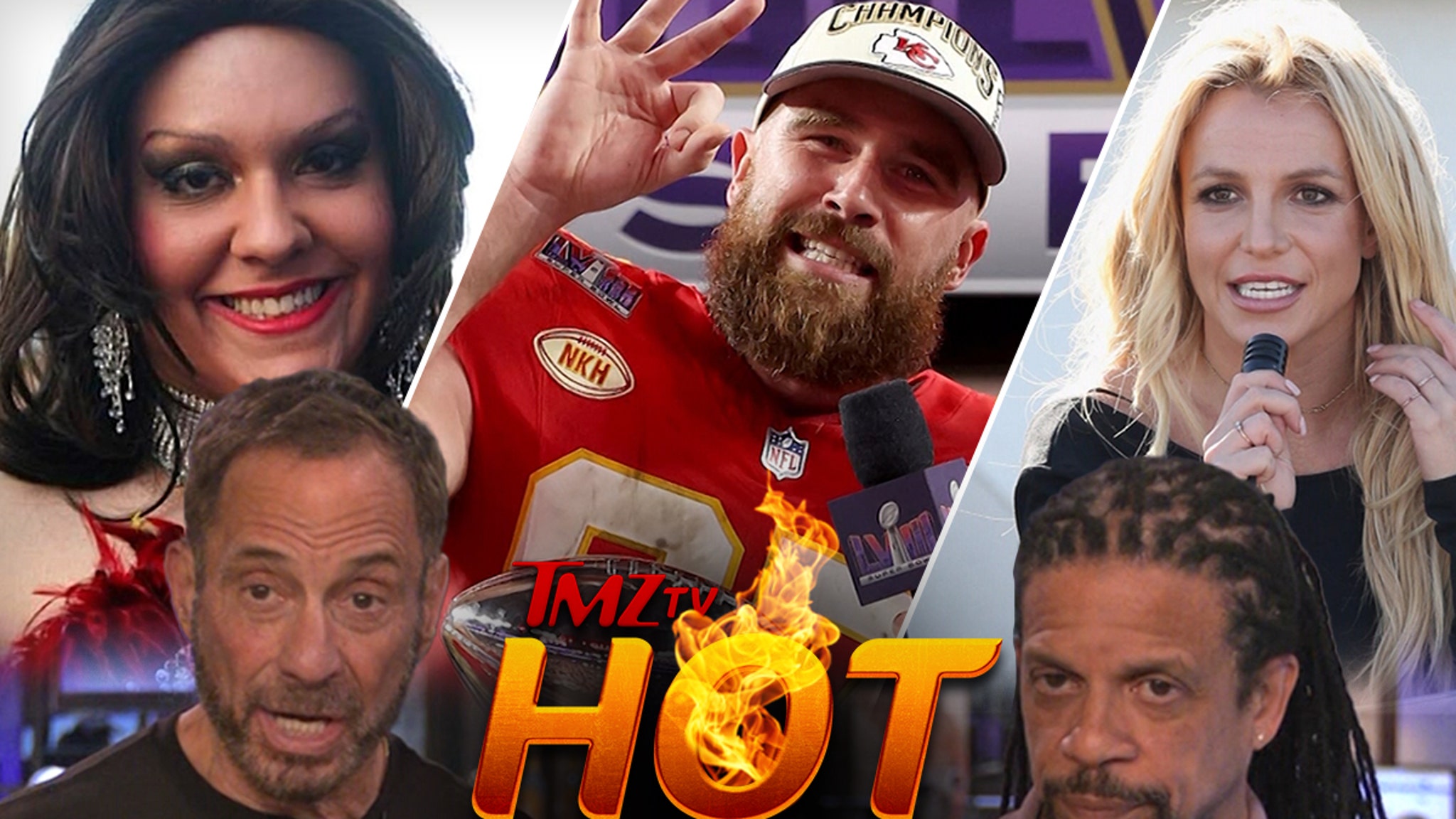Politics
U.S. blocks full U.N. membership for Palestinians

The United States is once again opposing Palestinian efforts to gain full membership in the United Nations.
The U.S. vetoed a Palestinian membership application Thursday, ending the latest debate on the issue at the U.N. Security Council and again squashing Palestinian statehood aspirations, at least for now.
Despite U.S. opposition, there was overwhelming support on the 15-nation Security Council for the Palestinian bid. U.N. Secretary-General Antonio Guterres said the devastating war between Israel and the militant group Hamas in Gaza has only made the statehood goal more urgent.
The vote Thursday was 12 in favor of membership for Palestinians with one abstention plus the U.S. veto.
“Recent escalations make it even more important to support good-faith efforts to find lasting peace between Israel and a fully independent, viable and sovereign Palestinian state,” Guterres told the Security Council.
But the U.S. ambassador to the U.N., Linda Thomas-Greenfield, said ahead of the expected vote that her country’s opposition has not changed.
“Our position is that the issue of full Palestinian membership is a decision that should be negotiated between Israel and the Palestinians,” said her deputy, Robert Wood.
Here’s a deeper look at the background.
Why is the U.S. opposed?
The U.S. says allowing the Palestinians to become a full member of the U.N. would be tantamount to recognizing Palestine as an independent state.
The U.S. maintains that such an elevation of Palestinian status has to come as part of a treaty with Israel that enshrines the two-state solution: establishment of a sovereign Palestinian state alongside Israel, complete with a raft of complicated security and territorial agreements.
The reality on the ground is nowhere near that.
Even before the Oct. 7 Hamas-led attack in southern Israel that killed about 1,200 people, the right-wing government of Israel was expanding Jewish settlements in the West Bank on land that Palestinians claim as theirs. Continued Israeli military occupation of the West Bank and the scores of heavily guarded settlements, considered illegal under international law, have rendered a contiguous Palestinian state in the region impossible, critics say.
The war in the Gaza Strip has further complicated the equation because of the vast devastation of the coastal enclave — nearly 34,000 Palestinians have been killed in the Israeli offensive, according to Gaza health officials — and the reluctance many in the international community would have to seeing Hamas members in a Palestinian national government.
What do the Palestinians say?
For Palestinians, full U.N. membership is one more step in recognition of their long-standing vision of statehood, an ever-more-elusive goal since the 1948 establishment of Israel that led to the displacement of millions of Palestinians.
But the current nature of Palestinian leadership also leaves many questions unanswered. The West Bank, governed by the internationally recognized secular Palestinian Authority, is divided from the Gaza Strip, which is ruled by Hamas, an Islamic militancy considered by the U.S. and some European countries to be a terrorist organization.
President Biden and others have urged major reforms of the Palestinian Authority, which is itself deeply unpopular among Palestinians, who see it as corrupt and ineffective.
Palestinians do not have “a credible leadership … capable of leading it out of its current existential crisis,” Khalil Jahshan, executive director of the Arab Center in Washington, said in a panel discussion Thursday.
Even if formation of a Palestinian state is practically impossible right now, granting U.N. membership would be a useful re-upping of the issue, said Mustafa Barghouti, a prominent Palestinian politician and activist.
“A state under occupation would put Israel in a very awkward situation,” he said, speaking via live video feed from the West Bank.
What does Israel say?
Israel says granting a state of Palestine full membership rewards “terrorists.”
“Who is the council voting to ‘recognize’ and give full membership status to? Hamas in Gaza?” asked Gilad Erdan, Israel’s ambassador to the U.N. Such a move, he added in remarks to the Security Council, would harm any chance for future dialogue.”
Erdan also said the Palestinians do not meet four basic criteria for U.N. membership: a permanent population, defined territory, a government and the capacity to sustain relations with other countries.
Israeli Prime Minister Benjamin Netanyahu and members of his government adamantly oppose the creation of a Palestinian state.
What is the U.S. game plan?
For days, U.S. officials said they had hoped to avoid having to veto the petition and worked to delay a vote as long as possible. But that gambit failed. Washington is often left standing almost alone in shooting down any proposals seen as critical of Israel and favoring the Palestinians.
A rare exception came last month when the U.S. abstained to allow passage of a U.N. resolution demanding a cease-fire in Gaza that Israel opposed.
Weren’t Palestinians already given U.N. membership?
Not full membership.
In 2012, the Palestinians were granted permanent observer status at the U.N., which allows them to participate in proceedings but not vote.
Their flag flies along with those of other nations outside the main U.N. building but at a slight distance from the others.

Politics
Mace, green lasers, screeching soundtracks: Inside the UCLA encampment on a night of violence

The noise — unsettling and dissonant — has been a constant inside the barricaded pro-Palestinian encampment at UCLA.
Soon after protesters, most of them students at the Westwood campus, pitched tents on Dickson Court on April 25, pro-Israel counterdemonstrators showed up with megaphones. Some shouted racist, homophobic and anti-Islamic slurs, according to campers interviewed.
They set up a giant video screen near the camp that played and replayed videos of Hamas militants. They broadcast a running torrent of loud, disturbing sounds over a stereo — an eagle screeching, a child crying — and blasted a Hebrew rendition of the song “Baby Shark” on repeat, late at night, so that campers could not sleep.
They returned night after night.
A woman kneels in prayer before a line of CHP officers at a pro-Palestinian encampment at UCLA.
(Wally Skalij / Los Angeles)
Inside the encampment, pro-Palestinian protesters, who occupied scores of tents on the grassy expanse, said they tried to maintain a tranquil space during the daylight hours when they felt some sense of control. They led Islamic prayers, observed Shabbat and hosted grief circles that included breath work and trauma therapy.
“It’s still an emotional, heavy space, but it’s also a very open, welcoming and loving space,” said Marie, a 28-year-old graduate student who, like many protesters interviewed, declined to provide her full name because she feared for her safety, physically and online. “Unfortunately, we experience the harassment and the terrorizing at night, which can be really upsetting.”
On Tuesday night, Dickson Court exploded into savagery and chaos. A large, mostly male crowd of masked counterdemonstrators tried to break into the encampment, ripping down wood and metal barriers, spraying bear mace, igniting stink bombs and tossing fireworks near the camp perimeter — and in at least one case inside the camp.
They aimed their green lasers at camper’s faces, prompting shouts of, “Shield your eyes!”
“They attacked us from physical and psychological fronts,” said Mona, a third-year student who also declined to provide her last name. “The outside aggressors have been working hard to create a harsh environment and make us feel unsafe.”

A pro-Palestinian protester, second from right, is assaulted by pro-Israel counterdemonstrators at a UCLA encampment.
(Michael Blackshire / Los Angeles Times)
After Tuesday’s late-night melee — and a slow campus response that a spokesperson for Gov. Gavin Newsom’s office called “unacceptable” — the encampment remained. And the pro-Palestinian protesters, who are demanding divestment from Israel and an end to the country’s military actions in Gaza, were defiant.
Kaia Shah, 23, a postgraduate researcher who has acted as a spokesperson for the encampment, said demonstrators got notice Tuesday from a university liaison that the encampment was unlawful and that students who continued to occupy the space could face suspension or expulsion.
Nonetheless, she said, “We plan on staying here until we get UCLA to divest.”
Shah described the scene Tuesday night as “violent and terrifying chaos,” and said her throat burned from inhaling all the mace in the air. She and another female demonstrator said some of the counterprotesters threatened to sexually assault women inside the encampment.
Shah said that, at one point, she saw police cars — it was unclear from which agency — pull up, turn around in a circle and leave. “The cops came and left as we were getting violently attacked by the Zionists,” she said.
Dueling chants rang out.

Pro-Palestinian protesters at UCLA huddle behind a makeshift barricade under attack by pro-Israel counterdemonstrators.
(Michael Blackshire / Los Angeles Times)
From inside the camp, they shouted: “Free, free Palestine!” and “Hold the line for Palestine!”
Outside, some counterdemonstrators screamed: “Second Nakba!” referring to the mass displacement and dispossession of Palestinians during the 1948 Arab-Israeli War. Others chanted: “USA! USA!”
As the violence unfolded, Citlali, a 25-year-old from Santa Ana who works for the organization Youth Organize! California and declined to provide her last name, said she frantically texted her younger brother, a student who was inside the encampment.
“Hey can you answer? Are you okay?? It’s okay to retreat,” she texted.
She said her brother was sprayed with bear mace and left the encampment Wednesday morning to wash up in his dorm room. “It’s gut-wrenching,” Citlali said. “I couldn’t sleep until 4 a.m. when he texted me that he was OK.”
After sunrise Wednesday, the UCLA chapter of Students for Justice in Palestine posted a list of their needs at the encampment: gas masks, skater helmets, shields, “super bright flashlights with strobe,” EpiPens, inhalers, hot lunches, gluten-free food.
Campus security teams, faculty members and California Highway Patrol officers guarded entrances to the encampment Wednesday morning.
Hannah Appel, an assistant professor of anthropology, stood at one entrance, where people dropped off medical supplies, face masks and water bottles. Only students with wrist bands indicating they were previously in the encampment and those who had someone on the inside vouching for them were allowed to enter, Appel said.
“Because of the escalated violence last night, we have to be very vigilant and careful about who can come in and out,” Appel said, before stepping aside to let a student squeeze through the barricades.
Vanessa Muros, an archaeology researcher at UCLA, showed up outside the encampment with finger cymbals, maracas and a tambourine. She said a call was sent out to students and faculty who participated in a band during a 2022 UC academic workers’ strike. The musicians were asked to help boost morale at the encampment.
“Apparently morale is low in there, and playing music or just making noise will help rally people together,” she said.

Pro-Palestinian protesters clash with pro-Israel counterdemonstrators at a UCLA encampment.
(Wally Skalij / Los Angeles Times)
Muros has worked at UCLA for 19 years and said she has never seen such mayhem on campus. “It’s upsetting, and I feel like the administration will blame the chaos on the students who have been peacefully protesting,” she said.
Renee Tajima-Peña, a senior faculty member, stood in a line outside Royce Hall to make a donation for the protesters: solar phone chargers, a poncho, some respirators.
“The story has been that all these students are irresponsible or causing problems,” she said. “I teach here and this encampment has been beautiful.”
Tajima-Peña was on campus Sunday when campers tussled with pro-Israel counterdemonstrators, who, she said, spit at students and shouted racial slurs.
“I was shoved by a guy a foot taller than me,” she said. “Another woman, a colleague of mine, also got shoved by some guy.
“But the students — they were so stoic. They didn’t want to engage and didn’t want to escalate. I was so proud.”
Times staff writer Safi Nazzal contributed to this report.
Politics
Video: Harris Blasts Trump Over Florida Abortion Ban

new video loaded: Harris Blasts Trump Over Florida Abortion Ban
transcript
transcript
Harris Blasts Trump Over Florida Abortion Ban
On the day that Florida began to enforce its six-week abortion ban, Vice President Kamala Harris delivered a searing attack on former President Donald J. Trump in Jacksonville, Fla., calling the measure “another Trump abortion ban.”
-
Today, this very day, at the stroke of midnight, another Trump abortion ban went into effect here in Florida. As of this morning, four million women in this state woke up with fewer reproductive freedoms than they had last night. This is the new reality under a Trump abortion ban. The contrast in this election could not be more clear. Basically under Donald Trump, it would be fair game for women to be monitored and punished by the government. Whereas Joe Biden and I have a different view. We believe the government should never come between a woman and her doctor. [crowd cheering]
Recent episodes in Abortion News
Politics
2 West Virginia county commissioners removed after arrests for skipping public meetings

A three-judge panel ordered Wednesday that two county commissioners in West Virginia’s Eastern Panhandle be removed from office over a month after they were arrested for purposefully jilting their duties by skipping public meetings.
Circuit Court Judges Joseph K. Reeder of Putnam County, Jason A. Wharton of Wirt and Wood Counties and Perri Jo DeChristopher of Monongalia County wrote in a written decision that Jefferson County Commissioners Jennifer Krouse and Tricia Jackson “engaged in a pattern of conducted that amounted to the deliberate, willful and intentional refusal to perform their duties.”
Krouse and Jackson — who is also a Republican candidate for state auditor — were arrested in March and arraigned in Jefferson County Magistrate Court on 42 misdemeanor charges ranging from failure to perform official duties to conspiracy to commit a crime against the state. The petition to remove the two women from office was filed in November by the Jefferson County prosecutor’s office, and the three-judge panel heard the case in late March.
LONGTIME OHIO GOP CAMPAIGN TREASURER CHARGED WITH DEFRAUDING CLIENTS OF NEARLY $1 MILLION
Neither Krouse or Jackson responded to emails from The Associated Press requesting comment.
In a public Facebook post, Jackson said she is working with an attorney to appeal the decision and that she is still running for state auditor.
Two West Virginia county commissioners have been removed from office following their arrests for deliberately skipping public meetings.
“An election has been overturned and the will of the people has been subverted,” Jackson wrote. “I have no intention of surrendering and plan to challenge this unjust decision every step of the way.”
The matter stems from seven missed meetings in late 2023, which State Police asserted in court documents related to the criminal case that Krouse and Jackson skipped to protest candidates selected to replace a commissioner who resigned. They felt the candidates were not “actual conservatives,” among other grievances, according to a criminal complaint.
The complaint asserted that between Sept. 21 and Nov. 16, 2023, Krouse and Jackson’s absences prevented the commission from conducting regular business, leaving it unable to fill 911 dispatch positions, approve a $150,000 grant for victim advocates in the prosecuting attorney’s office and a $50,000 grant for court house renovations.
The county lost out on the court house improvement grant because the commission needs to approve expenses over $5,000.
Both Jackson and Krouse continued to receive benefits and paychecks despite the missed meetings. They began returning after a Jefferson County Circuit Court order.
Krouse took office in January 2023, and Jackson in 2021.
-

 Education1 week ago
Education1 week agoVideo: Dozens of Yale Students Arrested as Campus Protests Spread
-

 News1 week ago
News1 week agoLarry Webb’s deathbed confession solves 2000 cold case murder of Susan and Natasha Carter, 10, whose remains were found hours after he died
-

 World7 days ago
World7 days agoHaiti Prime Minister Ariel Henry resigns, transitional council takes power
-

 Politics1 week ago
Politics1 week agoFetterman hammers 'a–hole' anti-Israel protesters, slams own party for response to Iranian attack: 'Crazy'
-

 World1 week ago
World1 week agoPeriod poverty still a problem within the EU despite tax breaks
-

 World1 week ago
World1 week agoUS secretly sent long-range ATACMS weapons to Ukraine
-

 News7 days ago
News7 days agoFirst cargo ship passes through new channel since Baltimore bridge collapse
-

 World1 week ago
World1 week agoTurkey’s Erdogan meets Iraq PM for talks on water, security and trade










